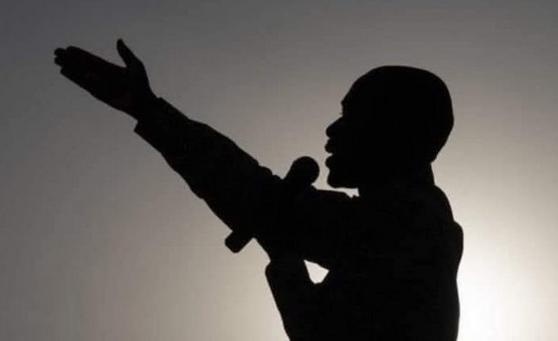News / National
CIO allegedly planned to kill Chamisa in 2020
14 Feb 2025 at 06:37hrs |
0 Views

A shocking investigation by the United Kingdom-based unit Dug Up has revealed that Zimbabwe's notorious Central Intelligence Organisation (CIO) allegedly considered eliminating opposition leader Nelson Chamisa in 2020, planning to blame the death on the Covid-19 pandemic. The claim adds another layer of intrigue to the already tense political landscape in Zimbabwe, where Chamisa was emerging as a significant threat to President Emmerson Mnangagwa's second-term bid in the 2023 presidential elections.
According to Dug Up's article, which focuses on the downfall of former CIO director general Isaac Moyo, the intelligence agency had identified Chamisa as the key opposition figure to Mnangagwa's leadership. The piece outlines how Moyo, appointed in 2017 by Mnangagwa, faced increasing pressure from his subordinates to take more extreme actions to maintain political control.
Moyo, described in the report as more of a diplomat than a hardline operative, reportedly rejected two separate proposals that sought to use the pandemic as a cover for eliminating Chamisa and other key opposition figures. These plans were allegedly presented by the CIO's operative division, which suggested that the elimination of political enemies could be hidden behind the widespread chaos and confusion of the Covid-19 crisis.
The investigative piece alleges that Moyo's refusal to approve the operations led to significant dissatisfaction among his juniors, with some even suggesting he was too "nice" to lead the CIO. A report submitted to President Mnangagwa in 2021 described Moyo as ineffective and recommended his removal from office.
The fallout from this internal rift reportedly culminated in a tense meeting within the Joint Operations Command (JOC), where Moyo's deputies bluntly told him, "You are not an operative." The breakdown in relations between Moyo and his subordinates contributed to his eventual ousting earlier this year, when he was replaced by Fulton Mangwanya.
The article further explains how Moyo's leadership style—marked by reforms aimed at curbing abuses within the CIO—did not sit well with many of the agency's operatives. He had reportedly demanded that operatives surrender their identity cards before leaving work to reduce corruption and abuses of power. Additionally, Moyo insisted on receiving reports for any cases involving excessive force and restricted the carrying of weapons, policies that were met with significant resistance within the agency.
Despite the internal strife and pressure, Moyo's refusal to act against Chamisa and other "problematic" opposition figures appeared to be a significant factor in his downfall. Chamisa, who led the Citizens Coalition for Change (CCC), survived numerous assassination attempts in the lead-up to the 2023 elections, although it is unclear whether these incidents were directly linked to the CIO's alleged plans.
The explosive claims outlined in Dug Up's investigation provide a glimpse into the intense and often violent political maneuvering within Zimbabwe's intelligence services, as well as the broader challenges facing the opposition as they contend with state-sanctioned repression.
According to Dug Up's article, which focuses on the downfall of former CIO director general Isaac Moyo, the intelligence agency had identified Chamisa as the key opposition figure to Mnangagwa's leadership. The piece outlines how Moyo, appointed in 2017 by Mnangagwa, faced increasing pressure from his subordinates to take more extreme actions to maintain political control.
Moyo, described in the report as more of a diplomat than a hardline operative, reportedly rejected two separate proposals that sought to use the pandemic as a cover for eliminating Chamisa and other key opposition figures. These plans were allegedly presented by the CIO's operative division, which suggested that the elimination of political enemies could be hidden behind the widespread chaos and confusion of the Covid-19 crisis.
The investigative piece alleges that Moyo's refusal to approve the operations led to significant dissatisfaction among his juniors, with some even suggesting he was too "nice" to lead the CIO. A report submitted to President Mnangagwa in 2021 described Moyo as ineffective and recommended his removal from office.
The article further explains how Moyo's leadership style—marked by reforms aimed at curbing abuses within the CIO—did not sit well with many of the agency's operatives. He had reportedly demanded that operatives surrender their identity cards before leaving work to reduce corruption and abuses of power. Additionally, Moyo insisted on receiving reports for any cases involving excessive force and restricted the carrying of weapons, policies that were met with significant resistance within the agency.
Despite the internal strife and pressure, Moyo's refusal to act against Chamisa and other "problematic" opposition figures appeared to be a significant factor in his downfall. Chamisa, who led the Citizens Coalition for Change (CCC), survived numerous assassination attempts in the lead-up to the 2023 elections, although it is unclear whether these incidents were directly linked to the CIO's alleged plans.
The explosive claims outlined in Dug Up's investigation provide a glimpse into the intense and often violent political maneuvering within Zimbabwe's intelligence services, as well as the broader challenges facing the opposition as they contend with state-sanctioned repression.
Source - NewZimbabwe
Join the discussion
Loading comments…


































